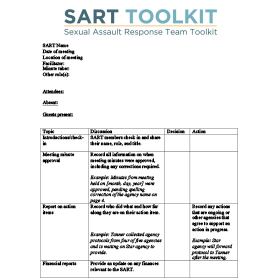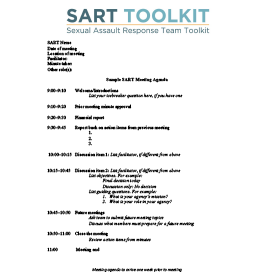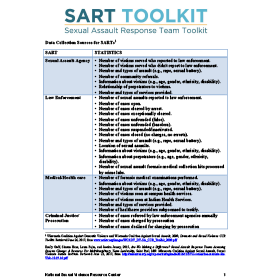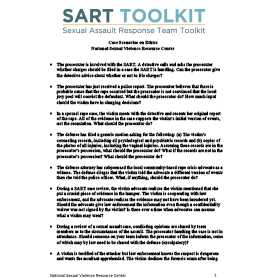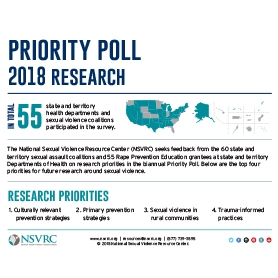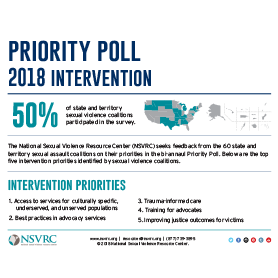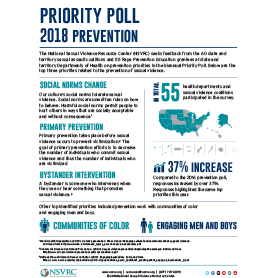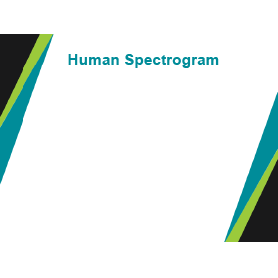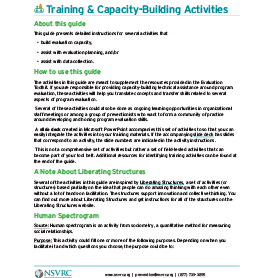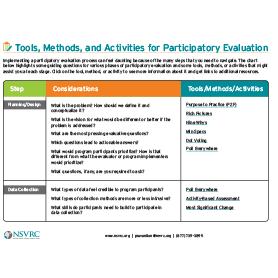The NSVRC collects information and resources to assist those working to prevent sexual violence and to improve resources, outreach and response strategies. This page lists resources on this website that have been developed by NSVRC staff.
- July 12, 2018
- Megan Thomas
This document is easily adaptable for any SART and is a highly formal version of meeting minutes. Taking objective meeting minutes that are accessible to everyone in the SART supports buy-in and provides a historical record for decisions or concerns and follow-up tasks. Publish Date
- July 12, 2018
- Megan Thomas
This document is easily adaptable for any SART and is a highly formal version of an agenda. Agendas that clearly set expectations for upcoming meetings increase transparency, particularly around decision-making, that allow member organizations to make informed decisions about preparation and attendance. Publish Date
- July 12, 2018
- Megan Thomas
This document, adapted by the National Sexual Violence Resource Center, provides examples of the type of data you can collect from different agencies. Publish Date
- July 12, 2018
- Megan Thomas
These sample scenarios on ethics give sexual assault response teams an opportunity to discuss potential situations they may experience. Publish Date
- July 05, 2018
- Emily Bigger
The National Sexual Violence Resource Center (NSVRC) seeks feedback from the 60 state and territory sexual assault coalitions and 55 Rape Prevention Education grantees at the state and territory departments of health on research priorities in a biannual Priority Poll. Publish Date July 2018
- July 05, 2018
- Emily Bigger
The National Sexual Violence Resource Center (NSVRC) seeks feedback from the 60 state and territory sexual assault coalitions on intervention priorities in a biannual Priority Poll. Publish Date July 2018
- July 05, 2018
- Emily Bigger
The National Sexual Violence Resource Center (NSVRC) seeks feedback from the 60 state and territory sexual assault coalitions and 55 Rape Prevention Education grantees at the state and territory departments of health on prevention priorities in a biannual Priority Poll. Publish Date July 2018
- June 01, 2018
- Emily Bigger
This collection of slides created in Microsoft PowerPoint, which is part of the Evaluation Toolkit, accompanies the Training and Capacity-Building Activities Guide in order to easily integrate the activities into training materials. Available slides are indicated in the activity instructions by slide number. Publish Date June 2018
- June 01, 2018
- Emily Bigger
This guide presents detailed instructions for several activities that build evaluation capacity, assist with evaluation planning, and/or assist with data collection, and is part of the Evaluation Toolkit. Also, check out the corresponding downloadable slide deck. Publish Date June 2018
- June 01, 2018
- Emily Bigger
This document provides guiding questions for different phases of participatory evaluation and highlights tools, methods, or activities to assist evaluators at each stage, and is part of the Evaluation Toolkit. Publish Date June 2018
Pagination
- Previous page
- Page 28
- Next page

